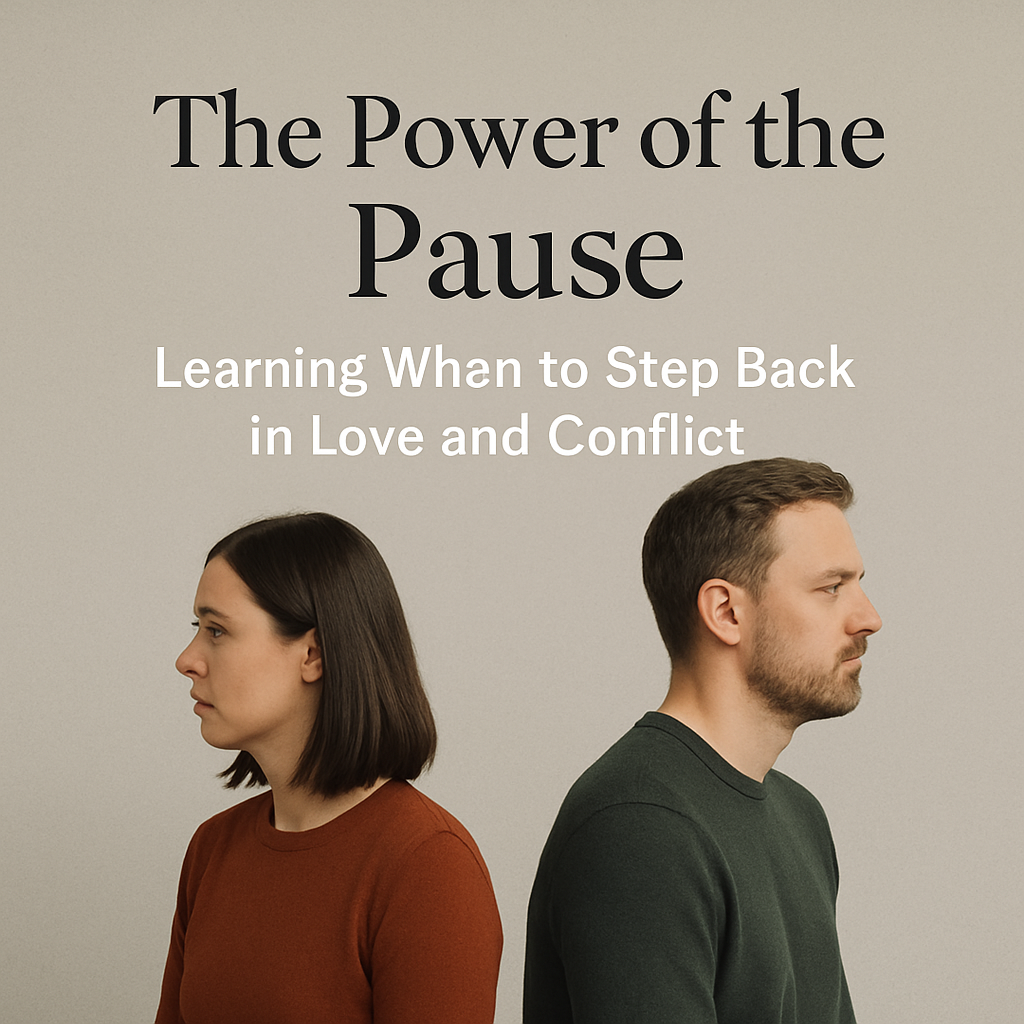“Jason, I called a time out, we need to take a break and come back at this once each of us has settled down.” I said as I walked down the stairs to my office with my husband hot on my heels. “I’m not done, I need you to hear what I’m saying…” and though I too had more to express, I forced us to take the pause and take time to breathe and reflect, away from each other. When we came back to the conversation later, each of us had relaxed and dug into the source of each of our strong emotional responses and could more effectively share our perspective, while being empathetic toward the other. Okay, don’t get me wrong, I was not the “expert” at good fighting- it took me quite a while, both of us in counseling, to recognize the point at which our arguing was no longer working, and we needed a break. I wanted just as badly to help him understand my point of view, but as the argument wore on, I would pull inward and stop engaging. Ultimately, neither of our methods were beneficial to ourselves or to each other by the time we got to that level in the discussion.
Remember not only to say the right thing in the right place, but far more difficult still, to leave unsaid the wrong thing at the tempting moment. — Benjamin Franklin
It’s easier said than done, isn’t it? But what Ben Franklin said is so true, sometimes the greatest challenge we have is to learn when NOT to speak, rather than knowing the best thing to say in the moment. And sometimes, because we are so focused on what we feel needs to be said, we are unable to recognize the best course is simply to say nothing at all. There are times in conflict when we are “flooded” with emotion. Emotional flooding is a term created by Dr. John Gottman to describe the physiological and psychological reaction that happens when we are experiencing a high level of anxiety. It is when you are feeling overwhelmed during conflict. Our brains are literally wired to self-protect, and in the case of conflict escalation, to push us to take a pause in the situation and allow our nervous systems to settle back down. That doesn’t just mean a timeout is recommended, but necessary for you both to have a rational discussion.
So, what does the Bible have to say about the importance of taking a timeout? “My dear brothers and sisters, take note of this: Everyone should be quick to listen, slow to speak and slow to become angry, because human anger does not produce the righteousness that God desires.” James 1:19-20 I am quite confident in saying that if you are in a heated argument, overwhelmed with stress and emotion, you are not going to be quick to listen or slow to speak… why not take time to calm down, remember that you love and think the best of your spouse, and create some space to show up as your best self before pushing forward. What I have learned time and again is that in order to be my authentic and vulnerable person in my relationship, and to allow the same of my spouse, I have to arrive to the situation at peace. And that, my friends, sometimes requires us to take a sorely needed timeout.
